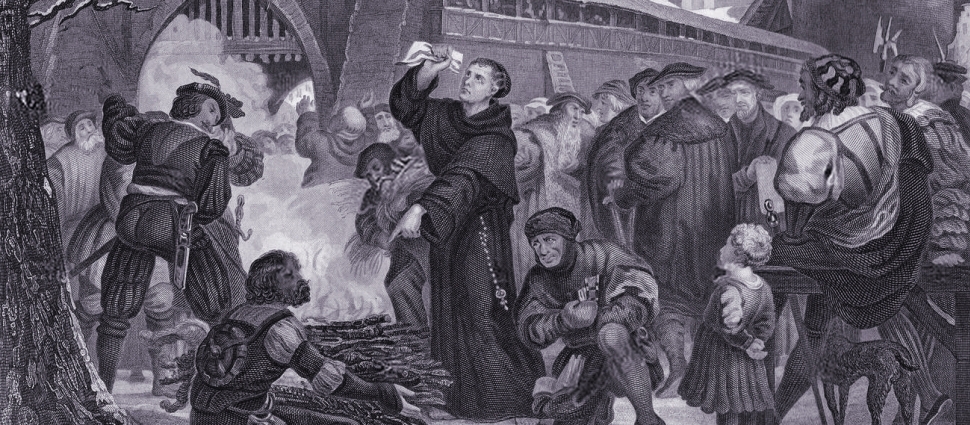Thursday, May 7, 2020

Genesis 15:1–4
After these things the word of the LORD came to Abram in a vision: “Fear not, Abram, I am your shield; your reward shall be very great.” But Abram said, “O Lord GOD, what will you give me, for I continue childless, and the heir of my house is Eliezer of Damascus?” And Abram said, “Behold, you have given me no offspring, and a member of my household will be my heir.”
It would be difficult to overestimate the importance of Genesis 15. It contains within it the principle of justification by faith and the formalizing of God’s everlasting covenant of grace. The promise God makes to Abram and ratifies through a formal ceremony is the very promise (or covenant) that Jesus Christ came to fulfill; the very promise under which Christians are saved today.
Chapter 15 describes two Divine encounters (vv. 1-6 & 7-21). Both encounters involve a dialogue between Abram and Yahweh. There are also signs pointing symbolically to God’s presence and promises. In the first encounter, God speaks to Abram by night by means of a vision concerning the promised seed. The second encounter takes place at dusk and concerns the promised land.[1]
Promise
“After these things the word of the LORD came to Abram in a vision: ‘Fear not, Abram, I am your shield; your reward shall be very great.’”
The late Old Testament scholar Meredith Kline suggests that, coming directly after victory in battle, the word the Lord speaks to Abram “has the character of a royal grant to an officer for faithful military service.”[2] Certainly, this is formal speech from the Lord complete with the announcement of a great reward.
The LORD calls Abram to “fear not.” After such a stunning victory we may wonder what Abram had to fear. Perhaps the LORD is addressing the fear that is building within Abram that the divine promise will not be fulfilled. Perhaps Abram feared that the four kings from the east would reorganize their forces and pursue him. Perhaps Abram’s fear came from the fact that he was hearing directly from God Almighty. It is helpful that the passage does not specify the source of Abram’s fear. In this way we can hear those same words of assurance addressing our own fears. Our Lord knows us through and through. He knows our thoughts from afar and discerns our hearts every moment. And into the chaos of fears that often beset us he speaks his assuring “fear not.”
Complaint
But Abram said, “O Lord GOD, what will you give me, for I continue childless, and the heir of my house is Eliezer of Damascus?” And Abram said, “Behold, you have given me no offspring, and a member of my household will be my heir.”
Verse 2 is the first record we have of Abram speaking to God. That does not mean that he had spoken to God prior to this. It does mean that the inspired writer sees this as the best time to introduce Abram’s speaking to God. And it comes in the form of complaint.
The term complaint in this context does not mean the sort of petulant, spoiled, belly-aching that the word is typically associated with today. Rather, complaint refers to what is sometimes seen in the prayers of God’s people as they rehearse the promises of God. They know what God has promised and either because of their own misunderstanding or because of God’s delay in delivering on the promise they raise their voice in dismay. As we know from certain Psalms for instance, there is a faith-filled way to lift up a complaint before the Lord. And this is what Abram is doing in verse 2.
Abram’s complaint arises precisely because he has believed the Lord’s promise and yet he wonders how such a promise can be fulfilled after such a long time. True, there was a person in place – Eliezer – who could serve as Abram’s legal heir (he was likely a young man or boy whom Abram could legally adopt to carry on his name). But the promise is that Abram would have his own child. The Lord had promised Abram to give Canaan to Abram’s “seed” (12:7) not simply a legal heir. Keep in mind that when Abram led his family out of Ur, Sarai was already barren. Now Abram is some 80 years old and Sarai’s barrenness is all the more heightened by her advanced years. How, Abram wonders, can God fulfill his promise?
Abram’s faith in the Lord gives him the freedom to give voice to his complaint. Again, this is not a childish tantrum. Even in his complaint, Abram sees himself rightly in relation to God. Notice Abram’s formal language of address: “O Lord GOD” - literally “Adonai Yahweh” (Almighty Yahweh). Though he has a complaint Abram has not lost sight of the fact that he is a servant of the LORD. Abram is speaking honestly before the LORD but not without first giving due recognition to the LORD’s place of superiority and by implication his (Abram’s) own humility as servant.
Abram’s complaint demonstrates just how much God’s promise meant to him. His belief was so substantial that he built his life upon it. The promise had come to define his life. His words of dismay over what he considered to be a too long delay in fulfillment came out of his utter conviction that God is trustworthy.




